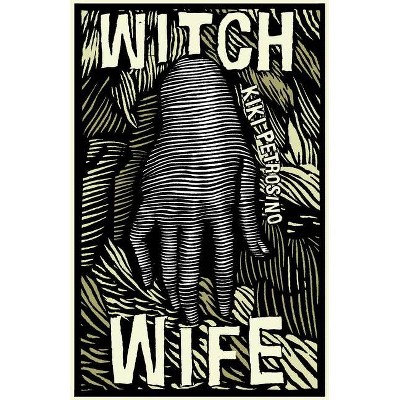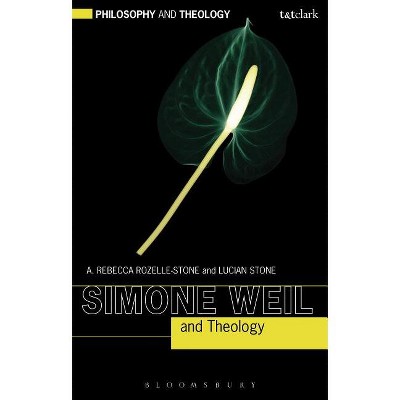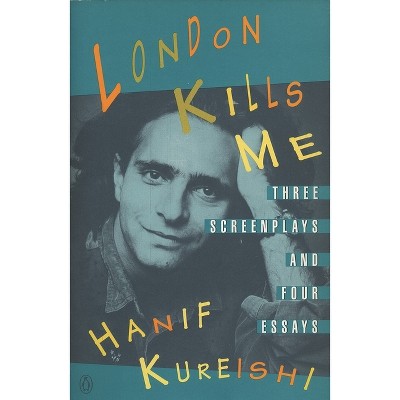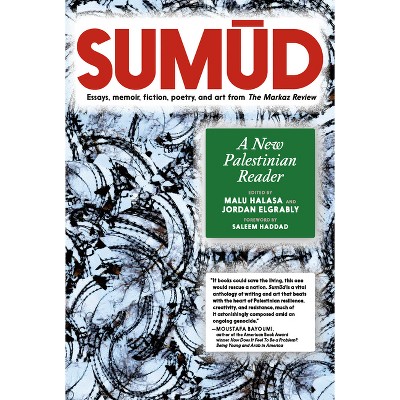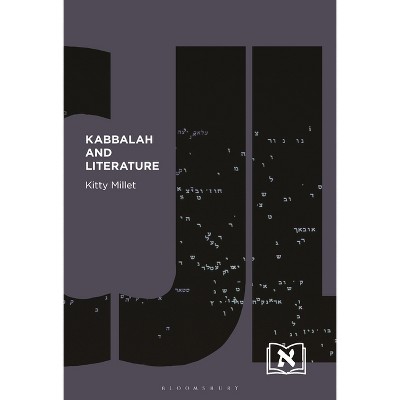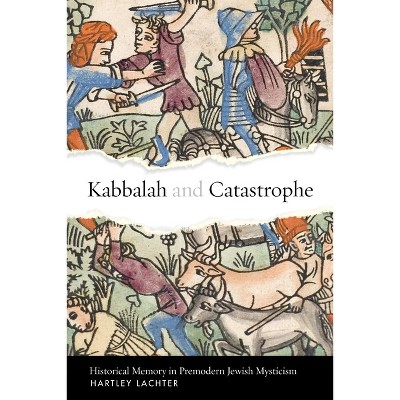Sponsored

The Jewish Decadence - by Jonathan Freedman (Paperback)
$33.00
In Stock
Eligible for registries and wish lists
Sponsored
About this item
Highlights
- As Jewish writers, artists, and intellectuals made their way into Western European and Anglo-American cultural centers, they encountered a society obsessed with decadence.
- About the Author: Jonathan Freedman is the Marvin Felheim Collegiate Professor of English, American Studies, and Judaic Studies at the University of Michigan.
- 304 Pages
- Literary Criticism, Jewish
Description
About the Book
"Freedman's final book is a tour de force that examines the history of Jewish involvement in the decadent art movement. While decadent art's most notorious practitioner was Oscar Wilde, as a movement it spread through western Europe and even included a few adherents in Russia. Jewish writers and artists such as Catulle Máendes, Gustav Kahn, and Simeon Solomon would portray non-stereotyped characters and produce highly influential works. After decadent art's peak, Walter Benjamin, Marcel Proust, and Sigmund Freud would take up the idiom of decadence and carry it with them during the cultural transition to modernism. Freedman expertly and elegantly takes readers through this transition and beyond, showing the lineage of Jewish decadence all the way through to the end of the twentieth century"--Book Synopsis
As Jewish writers, artists, and intellectuals made their way into Western European and Anglo-American cultural centers, they encountered a society obsessed with decadence. An avant-garde movement characterized by self-consciously artificial art and literature, philosophic pessimism, and an interest in nonnormative sexualities, decadence was also a smear, whereby Jews were viewed as the source of social and cultural decline. In The Jewish Decadence, Jonathan Freedman argues that Jewish engagement with decadence played a major role in the emergence of modernism and the making of Jewish culture from the 1870s to the present. The first to tell this sweeping story, Freedman demonstrates the centrality of decadence to the aesthetics of modernity and its inextricability from Jewishness. Freedman recounts a series of diverse and surprising episodes that he insists do not belong solely to the past, but instead reveal that the identification of Jewishness with decadence persists today.Review Quotes
"This is a breezy, entertaining, surprising book about the Jewish involvement in fin de siècle culture. . . . Freedman makes the important point that Jews were viewed as personifying as well as purveying the tainted dainties of the decadent imagination. Well and sometimes startlingly illustrated, this is indeed a labor of love by an author with encyclopedic knowledge. . . Gossipy, anecdotal and fun, the book is as full of goodies as a Christmas fruitcake."-- "96th of October"
"Erudite, gossipy, nuanced, funny, and moving. . . Freedman serves as collector culling materials from a wide array of sources, arranging them into an often dizzying but unfailingly interesting and almost always entirely persuasive account that supports his thesis, each time from a different direction."-- "Victorian Studies"
"This is a profoundly important book in Jewish Studies, as well as among the cultural and literary criticism of its artistic subject."-- "Religion and the Arts"
"Freedman's argument, that Jewish novelists, poets, actors, and philosophers reworked the
discourse of decadence, which often linked Jewishness to decline, to their own ends in order
to generate a Jewish response to the conditions of modernity, is compelling. More importantly,
it offers a model of how work on afterlives and transnational circulation can avoid the trap of
thinking in terms of unidirectional influence and attend to the agency and creativity of those
influenced."-- "Journal of British Studies"
"A book that transforms our experiences of familiar works and encourages us to carry on the work of Jewish cultural studies, following the example of one of its most gifted practitioners."-- "Reading Religion"
"It is chock-full of exciting and provocative ideas, but it is also just plain fun -- something akin to Freedman leading the reader by the hand on a tour of a cultural landscape that he knows like the back of his hand."-- "Los Angeles Review of Books"
"Overall, The Jewish Decadence is a richly rewarding read, blending deep knowledge, provocative insight and unsparing honesty to the role Jews have played in fin-de-siècle culture of Europe and the USA. Barely a page goes by with an insight into cultural production and consumption and unexpected links between creators, places and ideas. This book will be of value to anyone wishing to under early Modernism and Jewish contribution to vanguard art."--alexanderadamsart: Reviews of art, culture and literature
"Freedman reconceives of Jews as architects rather than victims of modernity. Although Jews were often demonized as sexual and artistic deviants, they also entered into dialogue with their detractors by contesting or reshaping the prejudices of the day. Most important, Jews played a central role in European culture as artists, critics, sponsors, networkers, and entrepreneurs; throughout the book, Freedman spots Jews where none have been discerned before, testifying to their ubiquity among the avant-garde."--Maud Ellman, University of Chicago
"This book takes us on an extraordinary journey through what the author calls 'something like modernity, ' as it is to be found in dance, literature, song, painting, theatre, film, and history. Decadence turns out to mean what it seems to mean, and an almost unimaginable range of other things as well. Its richness, as well as its constant entanglement in ideas of Jewishness, would have caused any other writer either to simplify or get lost, but Freedman wittily and resolutely does neither. His book is 'example-drunk, ' as he says, but it doesn't stumble. It celebrates complication and reflection and masquerade, and we find ourselves wishing the show--the one he is evoking and the one to be seen in the fabulous evocation itself--would never end."--Michael Wood, Princeton University
Bringing his capacious cultural expertise and scholarly rigor to a wide-ranging exploration of the association between Jews and decline and degeneracy, Jonathan Freedman performs an erudite, original, and wonderfully chutzpadik act of reclamation.--Alisa Solomon, Columbia University
About the Author
Jonathan Freedman is the Marvin Felheim Collegiate Professor of English, American Studies, and Judaic Studies at the University of Michigan. He is the author of Professions of Taste: Henry James, British Aestheticism, and Commodity Culture; The Temple of Culture: Assimilation, Anti-Semitism, and the Making of Literary Anglo-America; and Klezmer America: Jewishness, Ethnicity, Modernity.Dimensions (Overall): 9.0 Inches (H) x 6.0 Inches (W) x .65 Inches (D)
Weight: .92 Pounds
Suggested Age: 22 Years and Up
Number of Pages: 304
Genre: Literary Criticism
Sub-Genre: Jewish
Publisher: University of Chicago Press
Format: Paperback
Author: Jonathan Freedman
Language: English
Street Date: April 26, 2021
TCIN: 1006097532
UPC: 9780226581088
Item Number (DPCI): 247-41-8167
Origin: Made in the USA or Imported
If the item details aren’t accurate or complete, we want to know about it.
Shipping details
Estimated ship dimensions: 0.65 inches length x 6 inches width x 9 inches height
Estimated ship weight: 0.92 pounds
We regret that this item cannot be shipped to PO Boxes.
This item cannot be shipped to the following locations: American Samoa (see also separate entry under AS), Guam (see also separate entry under GU), Northern Mariana Islands, Puerto Rico (see also separate entry under PR), United States Minor Outlying Islands, Virgin Islands, U.S., APO/FPO
Return details
This item can be returned to any Target store or Target.com.
This item must be returned within 90 days of the date it was purchased in store, shipped, delivered by a Shipt shopper, or made ready for pickup.
See the return policy for complete information.
Frequently bought together
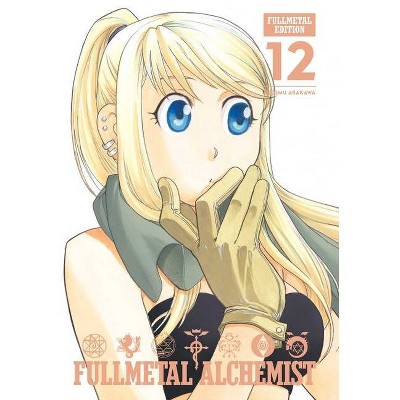
$19.56
MSRP $25.00
Buy 1, get 1 50% off select books
5 out of 5 stars with 1 ratings
Trending Book Deals

Bestseller
$20.36
was $22.89 New lower price
Buy 1, get 1 50% off select books
4.4 out of 5 stars with 63 ratings



Highly rated
$19.66
was $23.09 New lower price
Buy 1, get 1 50% off select books
4.7 out of 5 stars with 50 ratings

Highly rated
$19.66
was $23.09 New lower price
Buy 1, get 1 50% off select books
4.5 out of 5 stars with 47 ratings

$9.85 - $23.88
MSRP $15.99 - $32.99
Buy 1, get 1 50% off select books
4.8 out of 5 stars with 153 ratings

